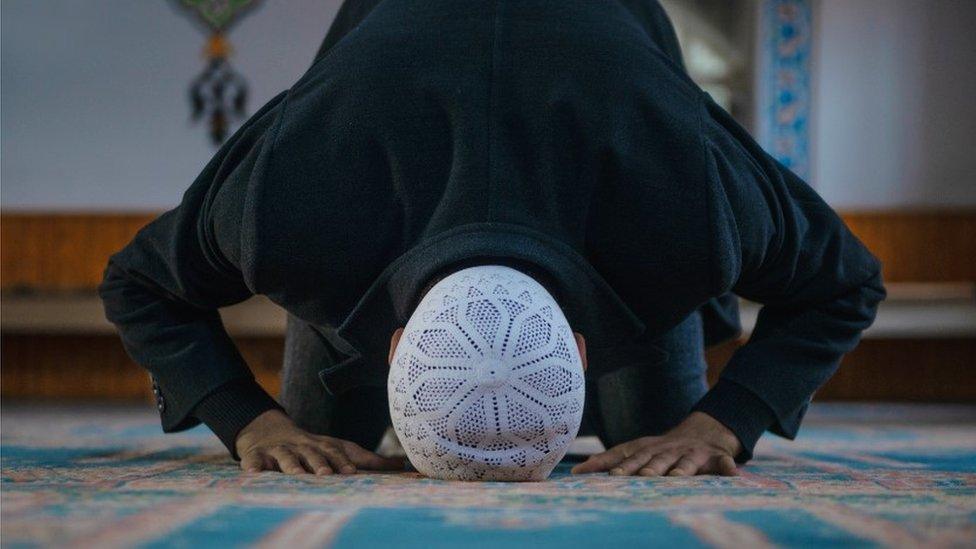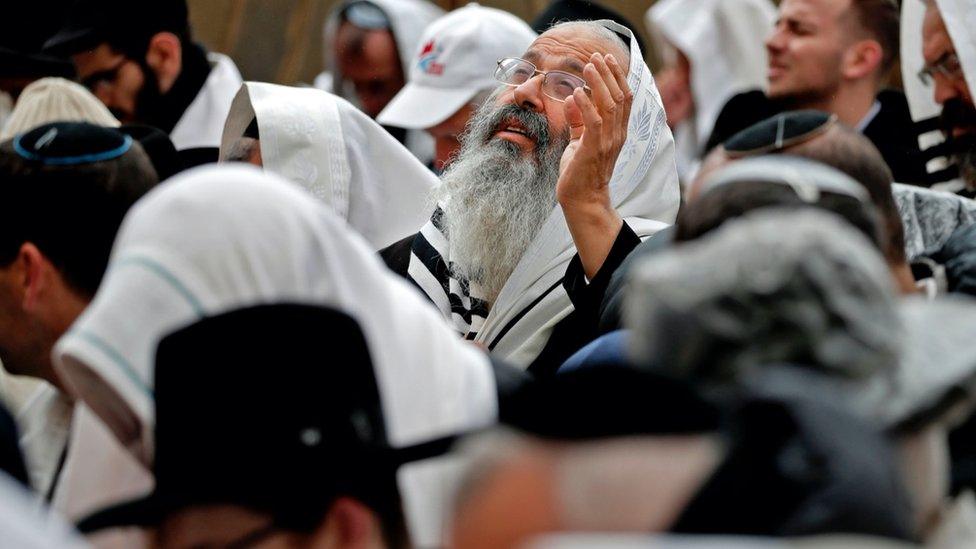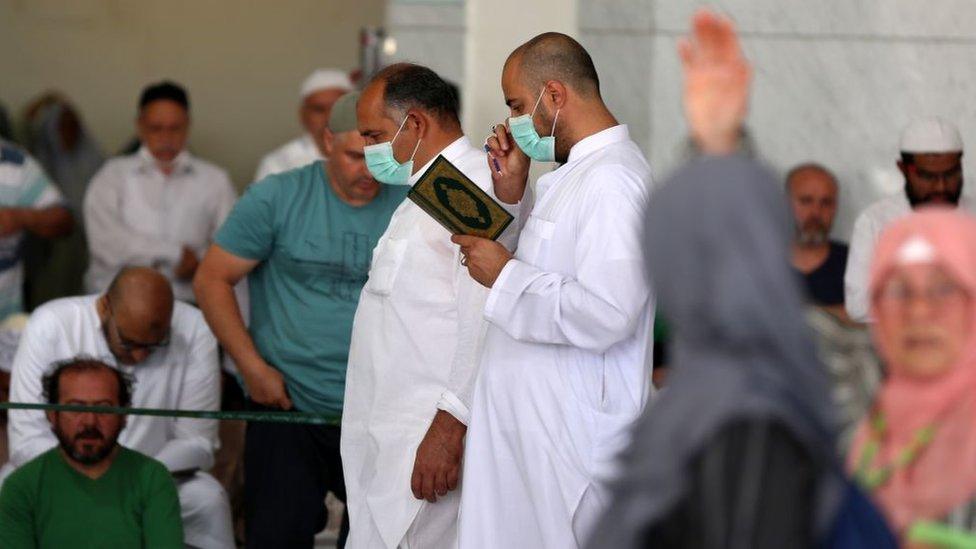Bradford mosque leader's legal bid over lockdown prayer ban
- Published

The Jamiyat Tabligh-ul-Islam Mosque in Bradford has been granted a judicial review over the lockdown restrictions
A mosque leader in Bradford has taken legal action against the government over lockdown restrictions on Friday prayers due to coronavirus.
Under the rules, places of worship must remain shut, with a few exceptions.
Tabassum Hussain, from the Jamiyat Tabligh-ul-Islam Mosque, argued the ban was "unlawful" and has been given the go ahead for a High Court challenge.
In court documents, the government said the measures were justified by the need to "protect life and public health".
During a High Court hearing on Thursday, where permission was granted for Mr Hussain's challenge to go ahead to a judicial review, it was argued the restrictions were a breach of Mr Hussain's human rights to practise his religion.
His barrister, Kirsty Brimelow QC, said the Friday prayers, known as the Jummah, are a "fundamental aspect" and an "obligatory" part of the practice of Islam.
'Deep distress'
She said the key is that they are "carried out physically in congregation".
In documents before the court, Ms Brimelow said: "The regulations not only prohibit an obligatory aspect of Islam, but they have done so at a highly symbolic moment, namely during the holy month of Ramadan when the importance of strict religious observance is attenuated."
The ban has caused "deep distress", she added.
Ms Brimelow said Mr Hussain, chairman of the mosque's executive committee, had put forward a plan for it to open only for an hour and a half for the Jummah prayer, with a maximum of 50 worshippers and social distancing in place.
In his ruling, judge Mr Justice Swift said he could "appreciate and sympathise" with Mr Hussain's frustration but declined to grant an urgent injunction that would have allowed prayers to take place at the mosque on Friday, ahead of the end of Ramadan.
The judge said it was no longer simply a prohibition on communal Friday prayers during the period of Ramadan but a "more general challenge" on the effect of the rules on "the ability to conduct Friday prayers".
Sir James Eadie QC, representing the Department for Health and Social Care, said in court documents the "undisputed interference" with the ability of people to attend their place of worship was "justified and proportionate by the need to protect life and public health".
He said any changes to lockdown rules involve matters of judgment, adding "the advice in a nutshell is the virus is highly contagious and particularly easy to spread in gatherings of people and indoors".
He added the "series of highly difficult judgment calls" were "primarily" for the government to make.

Follow BBC Yorkshire on Facebook, external, Twitter, external and Instagram, external. Send your story ideas to yorkslincs.news@bbc.co.uk, external.
- Published8 April 2020

- Published10 March 2020
